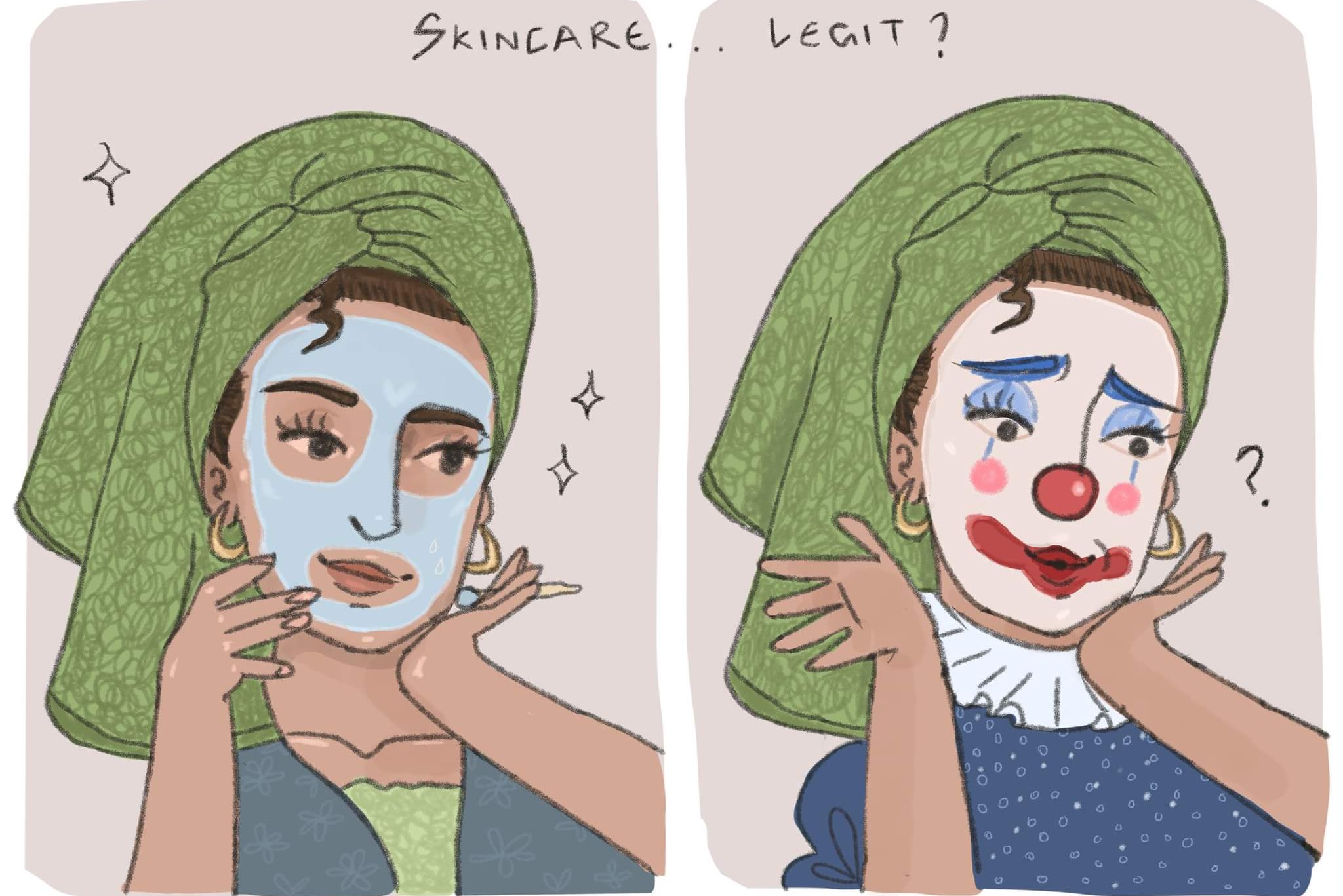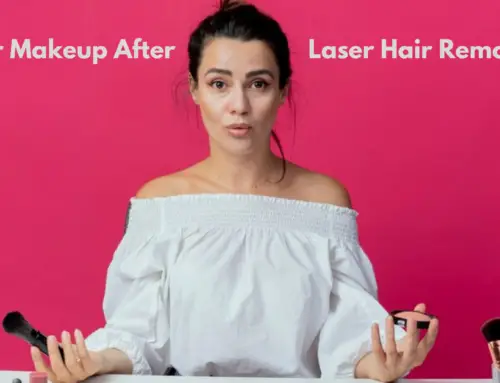Skincare – is it all just a hoax? Many people are skeptical about the effectiveness of skincare products, questioning whether they are worth the investment. However, when we delve into the world of skincare, we discover a complex industry driven by scientific research, innovative ingredients, and a genuine desire to improve the health and appearance of our skin. So, is skincare a hoax or a legitimate way to care for our skin?
To understand the truth behind skincare, it’s essential to consider both the history and the facts. Skincare has been around for thousands of years, with ancient civilizations like Egypt and Greece developing their own beauty rituals using natural ingredients. Today, the skincare industry has evolved significantly, with advancements in technology and research leading to highly effective products that can target a wide range of skin concerns. In fact, the global skincare market is projected to reach $189.3 billion by 2025, highlighting the significant demand and belief in the effectiveness of skincare. While not all products may deliver miraculous results, finding the right skincare routine tailored to your skin’s needs can help improve its health and appearance.
Skincare is not a hoax. It plays a crucial role in maintaining the health and appearance of your skin. With proper skincare, you can address specific concerns, such as acne, wrinkles, or dryness. The key is to understand your skin type and choose products tailored to your needs. Additionally, a consistent skincare routine, along with a healthy lifestyle, can help improve the overall condition of your skin. Trust the science behind skincare and enjoy the benefits it brings.

Is Skincare a Hoax?
Skincare is a topic that evokes a lot of opinions and beliefs. Some people swear by their skincare routine, while others dismiss it as a marketing ploy. So, the question arises: is skincare a hoax? Let’s delve into the world of skincare and uncover the truth behind the claims.
Understanding Skincare
Skincare is the practice of taking care of one’s skin to achieve and maintain its health and appearance. It involves a range of products, techniques, and treatments designed to cleanse, moisturize, protect, and treat the skin. The primary goal of skincare is to enhance the skin’s overall condition, address specific concerns, and slow down the aging process.
Skincare is rooted in science and incorporates ingredients that are known to have beneficial effects on the skin. These ingredients can include antioxidants, vitamins, exfoliants, moisturizers, and sunscreens. Skincare products can be divided into different categories, such as cleansers, toners, serums, moisturizers, and masks, each serving a specific purpose.
Skincare is not just about following a set routine; it also involves understanding one’s skin type and concerns. Different skin types, such as oily, dry, combination, and sensitive, require different approaches to skincare. By tailoring skincare routines to individual needs, it is possible to achieve desired results.
The Science Behind Skincare
Skincare is not a hoax; it is backed by scientific research and years of development. Skincare products undergo rigorous testing to ensure their safety and efficacy. Ingredients are carefully selected based on their proven benefits and compatibility with the skin.
Research has shown that certain ingredients, such as hyaluronic acid, retinol, and niacinamide, can improve the skin’s texture, reduce the appearance of wrinkles, and enhance hydration. These ingredients work at a cellular level to promote collagen production, boost skin elasticity, and protect against environmental damage.
Skincare also involves the use of proper cleansing techniques to remove dirt, oil, and impurities from the skin. Cleansing helps maintain a healthy barrier function and prevents clogged pores, which can lead to acne and other skin issues.
The Role of Marketing
While skincare itself is not a hoax, it is important to acknowledge the role of marketing in the industry. Skincare companies often use persuasive techniques and exaggerated claims to promote their products. It is crucial for consumers to be discerning and educate themselves about skincare ingredients and their proven effects.
Not all products labeled as skincare essentials are necessary or beneficial for everyone. It’s essential to understand your skin’s specific needs and choose products accordingly. For example, if you have oily skin, a lightweight moisturizer may be more suitable than a heavy cream.
- Do your research: Look for products with scientifically proven ingredients.
- Read reviews: Pay attention to reviews from reputable sources and other consumers.
- Consult professionals: Seek advice from dermatologists or skincare experts.
By making informed decisions and understanding the true benefits of skincare, you can navigate through the marketing hype and build an effective and personalized skincare routine.
The Importance of Consistency and Patience
Skincare is not a one-time miracle solution; it requires consistency and patience. Just like with any self-care practice, results may not be immediate or drastic. It takes time for the skin to respond to skincare products and treatments.
Consistency is key when it comes to skincare. Establishing a routine and sticking to it allows the skin to experience the cumulative effects of the products. Results may start to manifest after weeks or months of consistent use.
Is Skincare a Hoax? The Verdict
Skincare is not a hoax; it is a science-backed practice aimed at improving and maintaining the health and appearance of the skin. It involves understanding your skin type, using appropriate products, and being discerning about marketing claims.
By educating yourself about skincare ingredients, consulting professionals, and being consistent in your routine, you can reap the benefits of skincare. Remember, everyone’s skin is unique, and what works for one person may not work for another. It’s essential to find the right balance of products and techniques that suit your individual needs.
So, the next time you come across claims that skincare is a hoax, rest assured that a well-informed skincare routine can indeed make a positive difference in the health and appearance of your skin.
Key Takeaways
- Skincare is not a hoax, but it’s important to be skeptical of unrealistic claims.
- Many skincare products can be effective in improving the health and appearance of the skin.
- It’s crucial to understand your skin type and concerns before investing in skincare products.
- Consistency and patience are key when it comes to seeing results from skincare routines.
- Consulting with a dermatologist can help determine the best skincare regimen for your specific needs.
Frequently Asked Questions
Skincare is a topic that garners a lot of attention and opinions. With so many products and claims in the market, it’s natural to question whether skincare is just a hoax. In this FAQ section, we address some common concerns and provide insights into the world of skincare.
1. What are some common skincare misconceptions?
Skincare misconceptions often arise from misinformation or limited understanding of the subject. Let’s address a few common ones:
First, the notion that expensive products are always better is a misconception. While some high-end brands may provide great results, effective skincare doesn’t have to break the bank.
Second, the idea that natural ingredients are always safer and more effective is another misconception. While natural ingredients can be beneficial, not all synthetic or artificial ingredients are harmful or ineffective. It’s important to evaluate ingredients based on their scientific evidence.
2. How can I distinguish between legitimate skincare products and scams?
The skincare industry can be filled with scams and fake products, so it’s crucial to be cautious. Here are some tips to help you distinguish between legitimate skincare products and scams:
First, check the credentials of the brand or manufacturer. Look for reputable companies with a history of producing quality products.
Second, read reviews and testimonials from genuine customers. Real experiences can provide valuable insights into the effectiveness and safety of a product.
3. Are skincare routines necessary, or are they just a marketing ploy?
Skincare routines play an essential role in maintaining healthy skin. While some products may be marketed excessively, a well-rounded skincare routine can have significant benefits. Here’s why:
First, a consistent skincare routine helps cleanse and nourish your skin. It allows you to remove dirt, oil, and impurities effectively, promoting a clearer complexion.
Second, skincare routines can address specific skin concerns, such as acne, aging, or dryness. By using targeted products with active ingredients, you can improve the overall condition of your skin.
4. Can a healthy lifestyle replace the need for skincare?
A healthy lifestyle is undoubtedly beneficial for your skin and overall well-being. However, it doesn’t eliminate the need for skincare. Here’s why:
While a healthy lifestyle can provide a solid foundation for good skin, skincare products are formulated to target specific concerns and provide additional benefits. They can complement your lifestyle by delivering active ingredients that promote skin health and address issues that a healthy diet or exercise may not effectively resolve.
5. How can I make informed decisions about skincare?
Making informed decisions about skincare requires a combination of learning and personal experimentation. Here are some steps to help you make better choices:
First, educate yourself about different ingredients, their functions, and their potential benefits for your skin. Reliable sources such as dermatologist websites or scientific studies can provide valuable information.
Second, understand your skin type, concerns, and goals. This knowledge will help you choose products and routines that are tailored to your specific needs.

Skincare is a scam
Skincare is not a hoax, but it does have its limitations. While some skincare products can improve the appearance and health of your skin, they cannot magically fix all skin issues.
It’s important to approach skincare with realistic expectations and prioritize a healthy lifestyle, including a balanced diet, hydration, and sun protection. Skincare should be seen as an additional tool to support your overall skin health, rather than a cure-all solution.






Leave A Comment